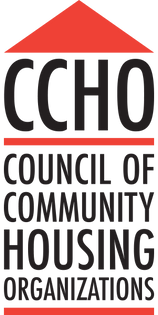Peter Cohen and Fernando Marti-Special to the San Francisco Examiner
May 27th, 2021
Last year was tough for everyone: from the pandemic to the murder of George Floyd, to the virulence of the national election, to budget shortfalls locally, we have had to adapt and to struggle for a better future. Amidst all the damage the pandemic has caused, the production and preservation of affordable housing also lagged over the past year. Budget shortfalls put construction projects on hold; and, despite dozens of willing sellers of large apartment buildings, acquisition funding has not been prioritized.
Thankfully, the budget outlook has improved drastically, and, thanks to forward-thinking policies by the Board of Supervisors and the Mayor, millions can be set aside for housing in the coming months following those prerogatives. The City Controller now projects a $153 million budget surplus. Funding for one of today’s most pressing issues, affordable housing, is back, with upwards of $68 million from that projected surplus — money that can be allocated and programmed quickly to build and to acquire hundreds of units of affordable housing.
That’s a significant step towards recovery from 18 months of housing stress for so many San Franciscans. Housing touches on every aspect of the health and future of this city: safe and dignified shelter during a pandemic, affordability that forms a foundation for the self-determination of BIPOC communities providing options to the outmigration of African-American residents, and stability that allows pace for dignified lives and significant engagement in people’s communities.
The City budget’s surplus is primarily from two housing-related sources. Last November’s Proposition I increased The City’s transfer tax on multi-million dollar buildings, projected to increase revenue by $46.8 million after baselines. It was expressly meant for two uses: emergency rent relief programs and affordable homes, including social housing and housing preservation work. Policies adopted unanimously by the Board of Supervisors at the passing of Prop. I created the Housing Stability Fund and the Rent Relief Fund, formalizing the uses of this new revenue.
The other source is excess Educational Revenue Augmentation Funds revenues from property taxes, to the tune of $83.4 million. The City has an adopted policy, unanimously passed by the Board of Supervisors and Mayor in 2019, to appropriate 50% of those funds to affordable housing. This investment is to strive for a geographic balance across The City, with half going to land acquisition and new affordable housing production, and the other half going to acquisition and preservation of existing apartments for permanently affordable housing, including The City’s Small Sites Program.
This is good news. During a recession such as the one we are living through, with ongoing job loss and instability, doubling down on affordable housing — in jobs and in homes — is exactly the kind of countercyclical investment that is critical to turning the economy around.
The timing is also critical for a big increase in housing preservation. Given the looming eviction cliff and the desire from real estate interests to speculate and profit from the pandemic, this is the time to step up our efforts to take at-risk building off the speculative market and into permanent affordability through nonprofit rentals, land trusts and co-ops. And to do so quickly, before The City faces another serious round of displacement in its already fragile communities of color.
San Franciscans have struggled and persevered through a year and half of a global pandemic and economic crisis. We will not be “returning to normal,” but coming out of this pandemic changed for the better, more prepared, and more focused on social and racial equity, putting affordable housing front and center in our city’s budget priorities. That budget is our moral document.
The recovery from COVID starts with stable housing for all our city’s residents. This means integrating a “housing ladder” model — from addressing the needs of unhoused residents through shelter in place hotel acquisitions, stepping up to small site acquisitions of at-risk buildings, affordable apartments, and even new mixed-income housing cooperatives.
The voters of San Francisco and leaders at City Hall deserve credit for their forward-thinking vision for these investments in affordable housing that have gifted us with these funds at such a critical time for our city’s most at-risk residents.
Let’s get these $68 million of budget surplus for affordable housing through the political process as swiftly as possible and into action!
Fernando Martí and Peter Cohen are co-directors for the San Francisco Council of Community Housing Organizations, a coalition of 21 community-based affordable housing developers and housing justice advocates.
